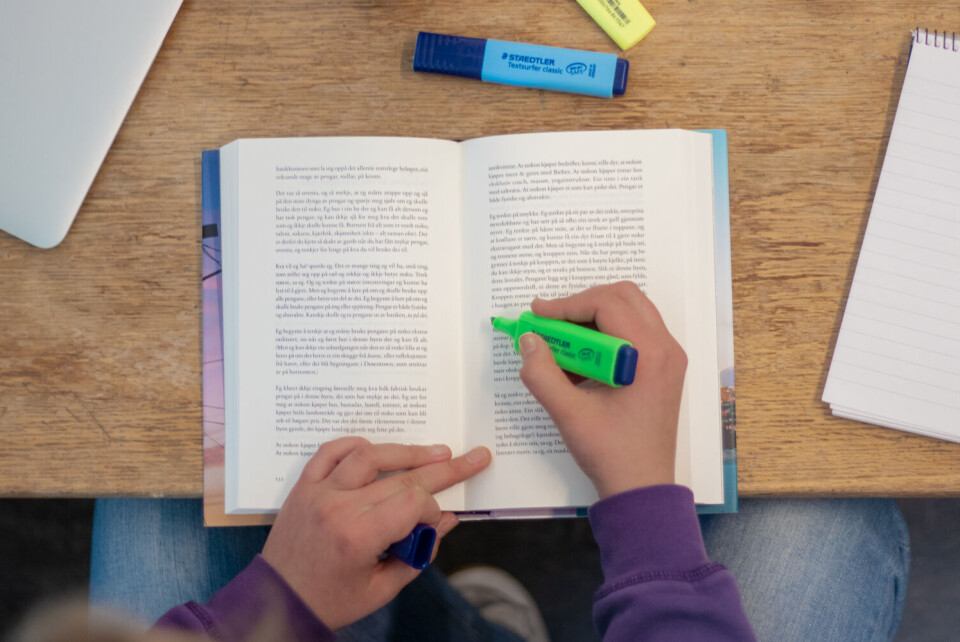Seven advice to help you focus while studying at home
Olav Schewe, author of Superstudent and education researcher, shares seven tips on how to stay on track during corona shutdowns.

Digital classes are back for ten days and counting, but we already know that it can become a full digital semester again. Olav Schewe was a top student: After specializing in Master of Business Administration at the University of Oxford, he decided that education was a topic he was passionate about.
These are Schewe’s best tips to make it easier to stay concentrated at home while corona lockdowns ensue.
1. Do not rely on self-discipline only
– When we are in the classroom, we experience something that is called «external regulation» by the experts, so you might feel the pressure to do the same when you are in the classroom, Schewe explains.
But now, due to covid-19 measures, it’s difficult to get together at college.
– It is up to you. You can always postpone the tasks a little bit, so it really takes a lot of discipline, Schewe says.
2. Use the pomodoro technique
– Researchers have found that when we think about doing something we don’t want to do activates a pain center it the brain. This pain goes away if you just get started instead of procrastinating the task. The hardest thing to do is to start, he says.
Schewe recommends the pomodoro technique that balances responsibility and breaks while working until you finish your daily tasks.
– I’m going to sit and commit to work for 20 minutes. During those 20 minutes you might find is that the «pain» has disappeared. And after that session, you should take a break, he says.
3. Come up with a plan
Schewe recommends creating a personal plan according to your needs and schedule.
– Research has shown that when you try to use just self discipline it will likely fail, because it’s weak. If you already have a plan, you don’t need to rely on self-discipline because you plan ahead.

So planning ahead is a good way to not waste time in the future!
4. Design an environment to work in
– Take control of your environment and remove distractions, advices Schewe.
He gives an easy example: Instead of leaving the cellphone close to their desks, students should put it away or hide it.
This also includes having the TV on, keeping a lot of tabs open in the browser, texting, and other things that can distract us easily.
5. Make a commitment with others
Schewe brings out that having a commitment with other people will put a little pressure on you because you don’t want to hurt others’ feelings nor fail them.
– If the other person does his or her work, you don’t want to be the one that’s not trustable.
6. Set mastery goals instead of performance goals
– Sometimes having a performance goal is good for your motivation, but when you’re stressed you need to focus on what you can do in the moment, he advises.
That makes it easier to deal with goals that help us to focus on self-improvement instead of focusing on short term goals.
7. Try to relax!
– You are not the only one dealing with these doubts. Don’t put too much pressure on yourself, recommended Schewe.
It’s also important to have time to relax from work. Don’t be so hard on yourself and remember that we are all together struggling to do our best in these difficult times!
Sammen also has counsellors and psychologist that you can consult, if you feel the pressure becomes overwhelming.















